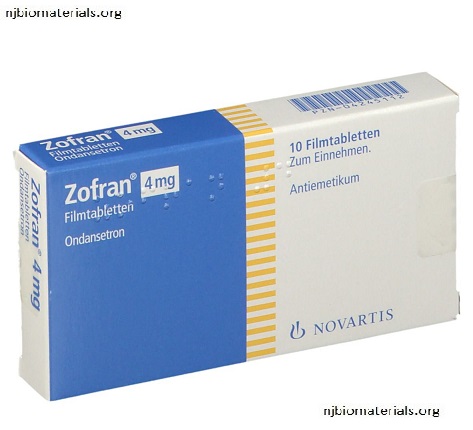Zofran (Ondansetron)
What is Zofran
Zofran, known generically as Ondansetron, is a medication primarily used to prevent nausea and vomiting caused by chemotherapy, radiation therapy, and surgery. Zofran is often prescribed when other anti-nausea medications have not been effective or are not appropriate. It is available in various forms, including tablets, dissolvable tablets, and liquid solutions, allowing for flexible administration depending on the patient's needs.
Zofran works by blocking serotonin receptors in the brain and gut. During treatments like chemotherapy, radiation, or surgery, the body can release serotonin, which binds to receptors in the brain’s vomiting center, triggering nausea and vomiting. Ondansetron prevents serotonin from binding to these receptors, thus reducing or preventing the urge to vomit. Its ability to act on the brain and gut makes it effective at controlling nausea caused by a variety of triggers.
Recommendations
Zofran is recommended for managing and preventing nausea and vomiting under different conditions. It is commonly prescribed in the following situations:
• Chemotherapy-induced nausea and vomiting;
• Radiation-induced nausea and vomiting;
• Postoperative nausea and vomiting;
• Nausea during pregnancy (off-label use);
• Other causes of nausea and vomiting.
Zofran is typically taken before a triggering event (such as chemotherapy or surgery) to prevent nausea. It is available in various dosages, and patients should follow their healthcare provider’s instructions for safe and effective use.

Precautions and Contraindications
Before starting Zofran, certain health conditions should be considered, as they may affect the safety or efficacy of the medication. Zofran may not be suitable for everyone:
• Heart conditions;
• Liver disease;
• Allergic reactions;
• Gastrointestinal conditions;
• Pregnancy and breastfeeding.
Your healthcare provider will review your overall health and medical history before prescribing Zofran to ensure it is safe for your specific situation.
Interactions
Zofran can interact with other medications, potentially increasing the risk of side effects or reducing its effectiveness. It is important to inform your healthcare provider of all medications, supplements, and over-the-counter products you are taking. Common interactions include:
1. Other medications that prolong QT interval;
2. SSRIs and SNRIs;
3. Tramadol;
4. Rifampin;
5. Antiarrhythmic drugs.
Always provide your healthcare provider with a complete list of your current medications to prevent harmful interactions and ensure the safe use of Zofran.
Side Effects
Like all medications, Zofran can cause side effects. While many are mild and manageable, some may be serious and require medical attention. Common side effects include:
• Mild headache;
• Constipation;
• Fatigue;
• Diarrhea;
• Dizziness.
More serious side effects are less common but can include:
• QT prolongation;
• Serotonin syndrome;
• Severe allergic reactions.
If you experience any severe side effects, such as chest pain, difficulty breathing, or persistent dizziness, contact your healthcare provider immediately.
Before You Start Zofran Treatment
Before starting Zofran, your healthcare provider will conduct a thorough evaluation to determine if it is the right medication for you. This may include:
• Review of heart health;
• Liver function tests;
• Discussing all medications;
• Monitoring plan.
It is essential to take Zofran exactly as prescribed and not to exceed the recommended dose, as doing so can increase the risk of serious side effects.
Overdose
An overdose of Zofran can be serious and may require immediate medical attention. Symptoms of an overdose include:
• Severe dizziness or fainting;
• Irregular or rapid heartbeats;
• Seizures;
• Confusion or agitation;
• Visual disturbances.
If you suspect an overdose, seek emergency medical help immediately. Overdosing on Zofran can lead to life-threatening complications, including severe arrhythmias and serotonin syndrome.